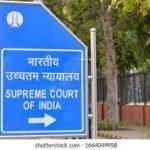The Appellant, S. Janaki Iyer, was appointed as a Hindi trained graduate teacher in 1989 and became a permanent teacher in 1992.
She sought a transfer from Bangalore to Mumbai or Pune, and a transfer order dated 01.10.1991, purportedly transferring her to Kendriya Vidyalaya Sangathan, Mumbai, was issued and signed by Mr. VK Jain, Assistant Commissioner (Headquarters) K.V. Sangathan, New Delhi.
The Appellant reported to Mumbai on 18.10.1991, but the transfer order was later not received by the Principal at Mumbai. The Appellant was informed in 1992 that the transfer order was reversed or cancelled.
Subsequently, a letter was sent to her regarding correction in the transfer order, but no response was received6. On 13.07.1992, she was placed under suspension pending a disciplinary inquiry.
A chargesheet was issued on 10.02.1993, alleging she managed to get herself transferred from Bangalore to Kendriya Vidyalaya, Mumbai, under a fake transfer order. The chargesheet contended that she was the beneficiary of this fake transfer order.
The disciplinary proceedings continued for almost nine years.
The disciplinary authority, after the Inquiry Report, found a prima facie case that the Appellant had violated rules governing service, specifically the CCS (CCA) Rules, 1965.
The original application and review petition filed by the Appellant were dismissed by the Central Administrative Tribunal (CAT) in 2004 and 2005 respectively, and the Bombay High Court upheld these judgments in 2018.
Law Involved
Central Civil Services (Classification, Control and Appeal) Rules, 1965 (“CCS (CCA) Rules, 1965”): Specifically Rule 15(2) which mandates that a copy of the inquiry report be provided to the charged employee.
Principles of Natural Justice: These include:
Hearing Rule (Audi Alteram Partem): No person should be judged without being given a fair opportunity to present their case.
Bias Rule (Nemo Judex in Causa Sua): No one should act as a judge in their own cause, thereby safeguarding impartiality.
Principle of Reasoned Decision (Speaking Orders): Requires every decision to be supported by valid and clearly stated reasons to promote transparency and accountability.
Statutory Rules: The disciplinary proceedings were required to comply with these rules.
The judgment references Managing Director, ECIL, Hyderabad and Others vs. B. Karunakar and Others¹ (1993) 4 SCC 727, which explains the constitutional position regarding the supply of the inquiry report to the employee.
Reasoning The Supreme Court considered several grounds of challenge:
Non-supply of Preliminary Inquiry Report: The Appellant argued that the non-supply of the preliminary Inquiry Report violated principles of natural justice and prejudiced her defence. The Court reiterated that non-supply of the inquiry report, which is relied upon by the disciplinary authority, is a violation of natural justice, potentially leading to a distortion of justice. It was established that the preliminary inquiry report’s findings were never made the basis for concluding the departmental inquiry, and it was an admitted fact that after the preliminary Inquiry, a regular Departmental Inquiry was held where both the parties had led their respective evidence. The Inquiry Officer had also returned his findings. The Court found that there was nothing on record to indicate that the Inquiry Officer had given a clean chit to the Appellant.
Inordinate Delay: There was an inordinate delay of nine years during which the inquiry proceedings continued. The Court acknowledged the delay but noted that the explanation provided by the Respondents for the time consumed was considered justified, pertaining to transfers of eleven teachers involved and the availability of relevant documents and witnesses16. It was explained that the disciplinary authority had stated the proceedings concluded on 30.03.2001.
Prejudice to Defence: The Appellant contended that the chargesheet prejudiced her defence, and certain documents sought were not provided.
Transfer Order’s Nature: The disciplinary authority had returned a finding that the transfer order on the basis of which the Appellant was transferred was a fake order2…. The Appellant argued she was merely the beneficiary and not involved in its issuance3. The Court noted that the disciplinary authority found the charges levelled against the Appellant to be prima facie true and that she was called upon to respond to the inquiry report8. The Court found that the transfer order dated 01.10.1991 was fake, and the Appellant was the sole beneficiary of it. It was also noted that the authenticity of the signatures on the alleged order was questioned.
Violation of Rule 15(2) of CCS (CCA) Rules, 1965: The Appellant claimed non-compliance with this statutory rule317. Rule 15(2) stipulates that if the disciplinary authority disagrees with the findings of the inquiry authority or proposes a major penalty, the employee must be supplied with a copy of the report, given tentative reasons for disagreement, and allowed to submit a written representation within fifteen days17. The Court held that a perusal of the rule shows that the disciplinary authority had submitted the inquiry report forward and disagreed with the findings, calling upon the delinquent employee to submit her representation18. The Court found the procedure to be duly complied with.
Lack of Findings Against Appellant: The Appellant argued that the disciplinary authority had no findings against her in the Inquiry Report3. However, the Court found that the disciplinary authority’s report concluded the transfer order was fake and that the Appellant was responsible for securing it, contradicting this claim.
Holding
- The Supreme Court found that the appeal was devoid of merit and therefore dismissed it.
- The Court concluded that there was no violation of natural justice.
- The impugned orders and dismissal of the appeal were upheld.
S. Janaki Iyer V. Union Of India And Others
Supreme Court: 2025 INSC 742: (DoJ 20-05-2025)






